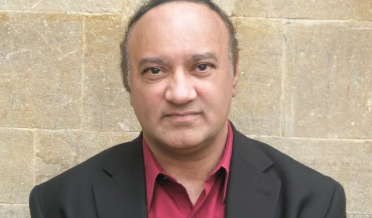
As the new year begins, many people reflect on the time that has passed and whether full use of this precious gift was made. This short paper explains what Islam has to say about time and how to use it effectively.
Our attitude to time
Nowadays, our attitude towards time can be summarised in two observations:
1. We do not value time, though we know it is such a precious gift from Allāh. With so many blessings like money and health, a person can always retain it after losing it. But we cannot turn the clocks back. Once we have lost one minute of our lives, then it will never return.
Time cannot be purchased. Billionaires today can buy everything, influence, property, manpower, titles, peerages and so much more. But they cannot purchase more time. Steve Jobs could afford everything, but he could not afford to pay for more time on earth.
Prophet Muhammad (peace and blessings of Allāh be upon him) knew we would be neglectful of this great favour, and hence said:
‘There are two gifts in which man is often cheated; free time and health.’
We are cheated in the sense that we only value it once we lose it.
2. We often complain of how fast time is passing. If true, then this itself is a sign that Judgement Day is coming. The Prophet (peace and blessings of Allāh be upon him) said in a Hadith reported by Abū Hurayrah (may Allāh be pleased with him):
‘The Hour will not come until time feels closer. So a year will feel like a month, and a month will feel like a week, and a week will feel like a day, and a day will feel like an hour, and an hour will be quick as a flash.’
These two points are related. It is precisely because we do not value time properly, we end up complaining about its swift passing. Our ‘we have all the time in the world’ attitude means we spend a disproportionate amount of time in pursuit of amusement and less in serious work. Then when we fall behind in deadlines and realise it is December already, we shift the blame on time by cursing it, rather than lamenting ourselves for not utilising it properly. Cursing time is a form of scapegoating. Many of our woes and ill-fortunes are down to our actions in the time that Allāh has given us. It is not time’s fault.
Islam’s position
Allāh constantly sends us signs that time is short. For example, we see the passing away of youngsters all the time now. Death is no longer the sole prerogative of the elderly; it is sudden and unexpected, like the Pandemic unfortunately showed.
Then Allāh indicates our time on earth is short through our bodies. As we get older, our bodily movement becomes more difficult. Allāh sends signs that we are getting old via wrinkles and white hairs.
But what is the usual reaction to this? We ignore the signs and do whatever we can to cover it up. We have become an ‘anti-ageing’ society, one obsessed with botox, jet-black hair, cosmetics and plastic surgery. By doing so, we are ignoring the warning lights from our Lord; that we are getting older, and hence closer to our death. In his famous al-Burdah, Imām Sharf al-Dīn al-Buīrī eloquently summed this up when he said:
Because of its ignorance, my ill-commanding ego has paid no heed.
To the warner of grey hair and approaching old age.
Nor has it prepared good deeds in welcome?
For an unannounced guest who has settled on my head.
Islam on time management
How do we get the most out of this great gift of Allāh in the form of time? What does Islam say on time management? How can we give more time to Allāh?
a. Learn to prioritise. The basis for understanding time management in Islam is to appreciate that we will never live long enough to complete everything we want to. Prophet Muammad (peace and blessings of Allāh be upon him) explained this brilliantly once when he placed three marks in three places on the bare ground. One was placed next to him, one far away and one a few feet in front of him. The Prophet (peace and blessings of Allāh be upon him) explained that the line nearest to him represented man. The mark furthest away from him represented his long list of desires, wishes and dreams. In between these two marks was the third one that represented death.
The point that the Prophet (peace and blessings of Allāh be upon him) made was that man always has a long ‘bucket list’, but death always come in between him and these wishes. In short, he never has time to complete everything he wants to in life. So he just has to learn to prioritise the most important and beneficial things on his long list.
b. Leave that which does not concern you. In the Qurān, Allāh describes the believers as the ones who ‘stay away from the pointless (laghw)’ (23: 3). Unfortunately, the smart phone, game consoles and boxsets are contributing to reckless time management today.
c. Discipline. This is the key to success. This is one of the reasons why alāh is compulsory five times a day and at set times. Allāh wants you to be time-conscious at all parts of the day. He wants you to keep looking at your watch. If you can be disciplined in salāh, you can be disciplined in everything.
d. Find quality time for Allāh, the Creator of time. Almost instinctively, when we are short of time and have too much to do, it is our religious duties that we forsake and leave first. Many madrassa students leave at fourteen, arguing they will not have enough time to revise for school exams and go to the mosque. When we are short of time, then our attendance to the mosque for jumua and other programmes suffers.
This is the wrong attitude to have. When we are busy with worldly matters, the answer lies in more time to Allāh, not less. He is the Creator of time. He will create baraka (blessings) in time for us. This Hadīth qudsī explains the matter perfectly:
Abū Hurayrah (may Allāh be pleased with him) reports that the Messenger of Allāh (peace and blessings of Allāh be upon him) said that Allāh said: ‘O son of Adam! Find quality time for My worship, I will in return fill you chest with riches and put an end to your poverty. And if you do not, then I will fill your hands with too much to do and I will not end your poverty.’
Allāh asks for us to set quality time aside in our lives for His worship. ‘Quality’ – in the words of Mulla Alī Qārī – means ‘emptying our hearts from everything other than Allāh as we worship Him’. In return, He will make us rich. But if we treat His worship as a burden or a heartless ritual, then in return Allāh will fill our hands with too many things to do, most of which do not bring benefit. Worse still, we will work ridiculous hours but still struggle to pay the bills.
So finding quality time for Allāh opens up and increases our time, it does not restrict it. Give time to Allāh and Allāh will provide you ample time to finish your worldly duties. The time we don’t have for Allāh is the very time Allāh has given us.
Conclusion
By far, one of the biggest favours of Paradise will be time. We will be there for eternity, enjoying the infinite favours of Allāh. There will no end to Paradise and that perfect lifestyle. But in order to take benefit of this priceless gift, we must do two things:
Firstly, we must treat time more carefully now. Certainly this starts with tawba, which should never be delayed. We do not know when our death rattle will be, though Allāh – through His Mercy – has given us till then to say sorry to Him for our sins. Prophet Mudammad (peace and blessings of Allāh be upon him) said:
Allāh Almighty accepts the repentance of His servant so long as the death rattle has not yet reached his throat.
Secondly we must remember that time is the biggest deception the Devil uses against us today. He constantly leads us to believe that we have ‘all the time in the world’, and that good acts can be delayed in pursuit of pointless amusement. It is the same trick the Devil used with our Forefather, Ādam (peace be upon him) when he said:
Shall I lead you to the Tree of Eternity and to a kingdom that will never cease? (20: 120).
This contrasts with Islam’s view; that time is very limited. And we simply do not know how long we have left.
May Allāh enable us all to truly appreciate time, āmīn.







